 Petzlover
Petzlover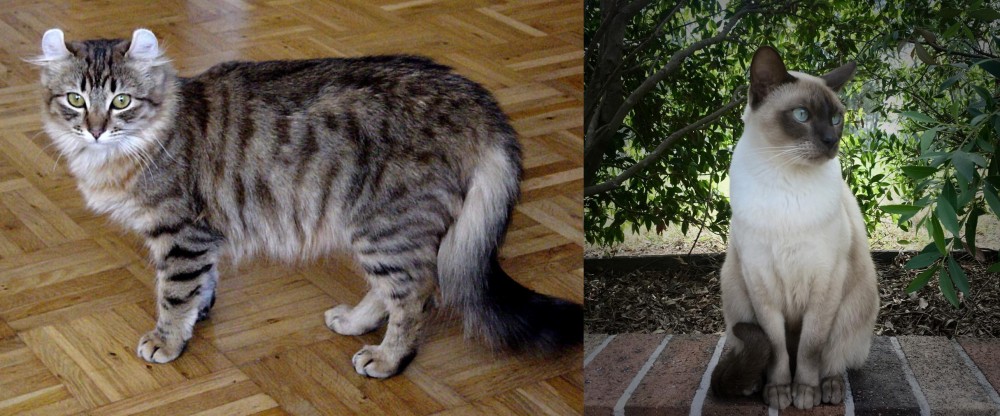 American Curl is originated from United States but Tonkinese is originated from Canada. Both American Curl and Tonkinese are having almost same weight. American Curl may live 3 years less than Tonkinese. Both American Curl and Tonkinese has same litter size. Both American Curl and Tonkinese requires Moderate Maintenance.
American Curl is originated from United States but Tonkinese is originated from Canada. Both American Curl and Tonkinese are having almost same weight. American Curl may live 3 years less than Tonkinese. Both American Curl and Tonkinese has same litter size. Both American Curl and Tonkinese requires Moderate Maintenance.
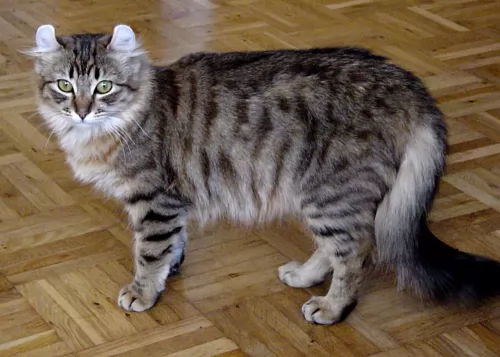 The American Curl is well known for its unusual shaped ears and for being one of the youngest cat breeds.
The American Curl is well known for its unusual shaped ears and for being one of the youngest cat breeds.
It developed in California. The first of these cats appeared to have been strays that arrived in California in 1981. The black female’s name was Shulamith, and she gave birth to a litter with the same curled ears, and was the ancestor of the American Curls of today.
Appearing in a cat show in 1992 for the first time, the longhaired American Curl was then given championship status by TICA and it was also admitted to the Cat Fanciers Association’s championship class in the long- and shorthaired divisions.
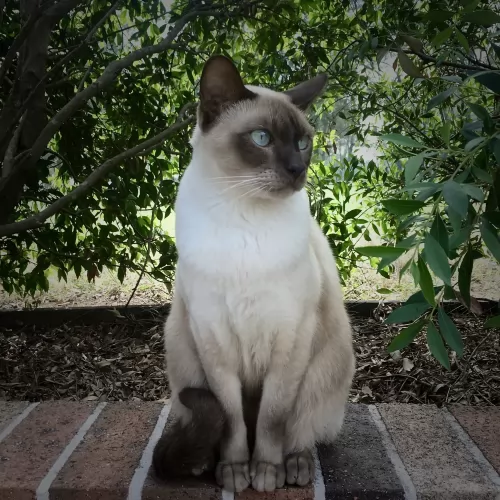 It was about in 1960 that a breeding program was established for these cats. The Tonkinese is a cat that hails from Canada and it was a certain Jane Batlett who was responsible for breeding this cat.
It was about in 1960 that a breeding program was established for these cats. The Tonkinese is a cat that hails from Canada and it was a certain Jane Batlett who was responsible for breeding this cat.
Also, Margaret Conroy, another breeder, set up her breeding program between a Burmese female with a Siamese. Both Conroy and Bartlett worked together on the breed and the Tonkinese came about. The Cat Fanciers Association recognized this cat breed in 1984.
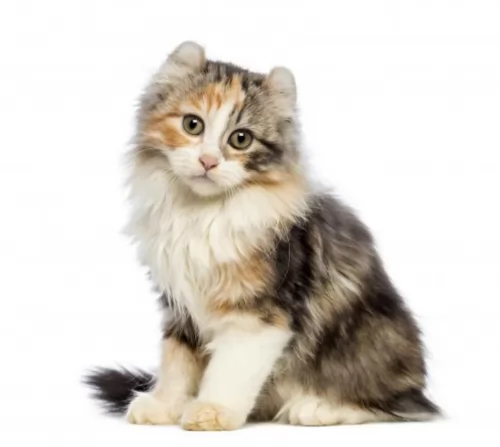 The American Curl is a medium-sized cat weighing roughly 2.3–4.5kg. Its a cat that stands between 21 and 27cm in height.
The American Curl is a medium-sized cat weighing roughly 2.3–4.5kg. Its a cat that stands between 21 and 27cm in height.
It’s also a cat that takes a fairly long time to mature, reaching maturity about 2 or 3 years of age. The most distinctive feature of this cat is its unusual ears that curl backward as opposed to standing up like most other cats. At birth the ears are straight but they gradually start curling back, staying in a tight bud position.
The American Curl's coat is soft and silky and doesn’t require too much grooming. The fur comes in colors such as grey, white, apricot, black, and the coat can be a solid color or in a host of different patterns such as bi-color, triple-color, tabby, ticking and others.
The head is round, the eyes of the cat are large, giving the cat an alert, friendly look. The eyes can be many different colors from blue to green, amber, copper, hazel, and yellow.
The American Curl Cat loves his human family and gets on well with children too. He is an adaptable cat, settling into different lifestyles. You’ve got to watch him around small children who might manhandle him and pull his sensitive ears.
Nonetheless, he is sociable and loving. He is an intelligent cat, being active and alert and will even follow you around to see what you’re doing that he can be involved in too. He isn’t a particularly talkative breed but he loves to play and can even learn to fetch a smallish ball.
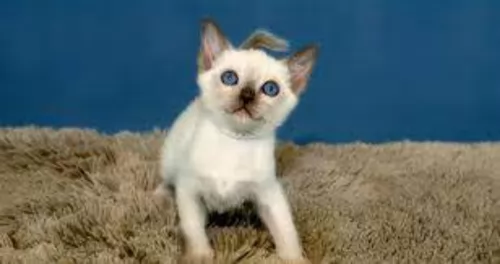 As a medium-sized cat, with a firm, muscular body, your Tonkinese will weigh between 2.5 – 6kg.The head is slightly rounded with fairly broad ears that are set wide apart.
As a medium-sized cat, with a firm, muscular body, your Tonkinese will weigh between 2.5 – 6kg.The head is slightly rounded with fairly broad ears that are set wide apart.
The eyes are bigger than the classic Oriental shape and can range from green to light blue in color.
The coat of the Tonkinese is short and close-lying and is soft and silky to touch. The mask, the ears, legs and tail are all darker than the body.
The Tonkinese cat breed is recognized by the Cat Fanciers' Association in 4 base colors - medium brown, champagne, blue and and platinum.
The Tonkinese cat, with one of its parents being the Siamese cat, just loves giving and receiving attention.
Active and social, he is an excellent choice for families with children and even other pets. They love just seeking out their human companions and lying down where they are.
They’re intelligent felines these, and you can even teach them some simple commands. Because of them being so very social, they don’t like to be left on their own – certainly not for the whole day while you go off to work.
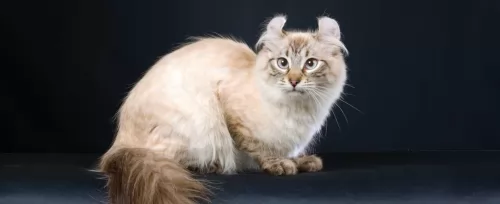 You’ll find your American Curl to be a friendly, loving cat that will easily bond with his human family. They’re adaptable cats and will happily adjust to your lifestyle.
You’ll find your American Curl to be a friendly, loving cat that will easily bond with his human family. They’re adaptable cats and will happily adjust to your lifestyle.
Despite their affection, however, American Curls aren't the type of cats to want to be pampered and petted - they are quite happy just to sit next to their owner and relax, or play with their toys.
Because American Curls are highly adaptable, they're suitable for a number of different home types, and homes with other pets or children, making you a splendid feline pet and companion.
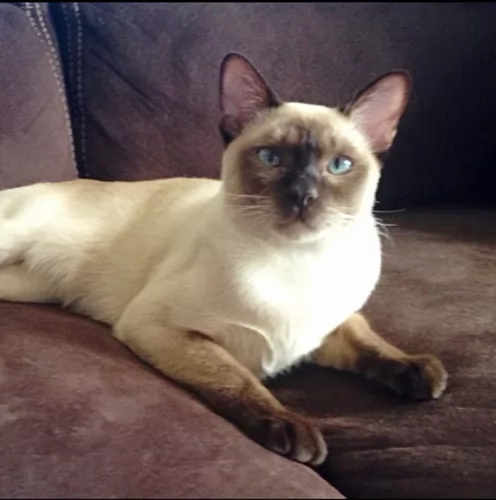 Tonkinese cats can be active and highly entertaining with their antics. When you laugh at them, they are encouraged to perform more.
Tonkinese cats can be active and highly entertaining with their antics. When you laugh at them, they are encouraged to perform more.
They are affectionate and intelligent cats and you will need to have toys for him. When he isn't playing, he likes nothing more than to be petted and pampered by his human family.
Your Tonkinese will get on well with children and other pets, and he generally makes a splendid pet for those who care well for him.
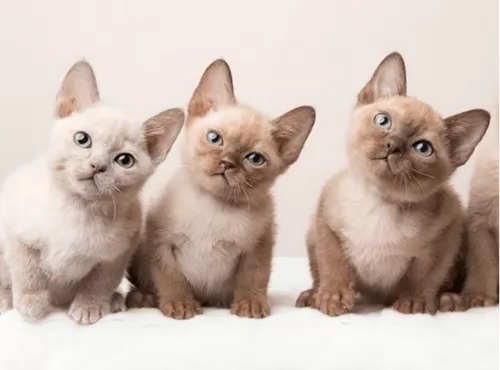 Tonkinese are generally healthy cats but they can be prone to eye problems such as gingvitis.
Tonkinese are generally healthy cats but they can be prone to eye problems such as gingvitis.
Because they are part of the Siamese family, they can succumb to some of the diseases that the Siamese battles with. These are asthma/bronchial disease, heart defects, lymphoma, and crossed eyes.
Lymphoma is linked with feline leukemia, a viral infection, and thankfully, more cats are being vaccinated for feline leukemia, so fortunately it is becoming less common.
Intestinal lymphoma affects the gastrointestinal tract and is the most common type of lymphoma in cats, being more common in older cats. Affected cats can suffer with weight loss, vomiting, and diarrhea. Get your cat to the vet as diagnosing this lymphoma will require the vet finding cancerous cells on microscopic examination.
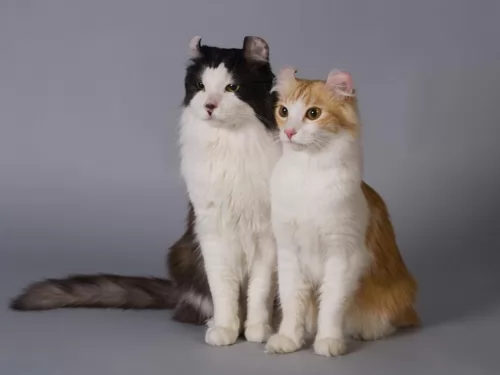 The Curl’s coat can be either short or long, but with a gentle brushing, the coat can be well maintained. The shorthaired variety sheds a bit more during the year than the longhaired variety and this is why grooming and brushing becomes necessary.
The Curl’s coat can be either short or long, but with a gentle brushing, the coat can be well maintained. The shorthaired variety sheds a bit more during the year than the longhaired variety and this is why grooming and brushing becomes necessary.
You can brush your cat’s teeth to avoid periodontal disease.
Trim your cat’s nails every other week if they don’t wear down naturally.
Check inside- and outside the cat’s ears for parasites and dirt. The cat’s ears have a unique shape and they may well be born with narrowed ear canals that can trap dirt and wax and this results in ear infections.
Like all cats breeds, your lean, muscular American Curl can be susceptible to obesity and heart disease. Speak to your vet about a special cat food for your feline friend as cat food is specially formulated to deliver the exact level of natural vitamins, minerals, fiber and antioxidants needed. Understand the amount of food your Curl requires by checking out the feeding instructions on the food labels. Always talk to your vet if you're not sure how much and what you should feed your cat.
Remember, that if you don’t want to do these grooming routines for your cat for fear of hurting him or not doing it properly, the vet or your local pet groomer will do it for you.
Make sure to provide your intelligent American Curl with toys and exercise. You can buy toys and games that will challenge his mental and physical abilities.
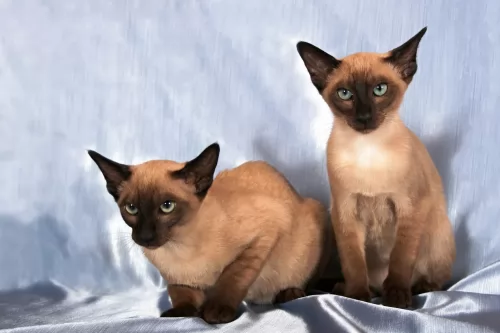 The Tonkinese has a short coat so a brush once a week will be sufficient for this cat as it just helps to brush away dust and loose hairs.
The Tonkinese has a short coat so a brush once a week will be sufficient for this cat as it just helps to brush away dust and loose hairs.
He will need a litter box and this will need to be kept spotlessly clean. Use a small rake, available from your vet or local pet shop, to rake up the cat’s feces.
When you first bring your Tonkinese cat home, you will at least need some of the basics to ensure his wellbeing. These are -
sleeping equipment – baskets or cushions in a nice warm, dry place for your cat.
A cat tree for climbing and a scratching post. Cats are natural scratchers so you can’t get angry with your cat for scratching. Instead, invest in a scratching post so that he doesn’t use your furniture to scratch on.
Food is such an important part of caring for a cat. The best type of cat food can ensure your cat has a strong immune system that allows him to not succumb to every cat sickness there is.
Cats are carnivores so ensure he has food high in meat. Sometimes it can be costly, but try to provide your cat with the best, most high-quality cat foods there are to ensure his good health and happiness.
A cat needs a constant supply of fresh, cool water night and day. The water should be changed regularly.